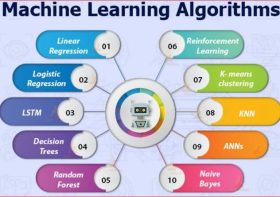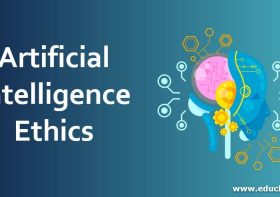The Impact of AI on Healthcare: Trends and Innovations

In recent years, the healthcare industry has been revolutionized by the integration of artificial intelligence (AI) technology. From diagnostic tools to personalized treatment plans, AI is changing the way healthcare providers deliver care and patients receive treatment. In this article, we will explore the latest trends and innovations in AI healthcare technology and how they are shaping the future of medicine.
Diagnostic Accuracy and Efficiency
One of the most significant impacts of AI in healthcare is its ability to improve diagnostic accuracy and efficiency. AI-powered systems can analyze vast amounts of data quickly and accurately, helping healthcare providers make more informed decisions. For example, AI algorithms can analyze medical images such as X-rays and MRIs to detect abnormalities that may be missed by human eyes. This can lead to earlier detection and treatment of diseases, ultimately improving patient outcomes.
Personalized Treatment Plans
Another key trend in AI healthcare technology is the development of personalized treatment plans. By analyzing a patient’s medical history, genetic data, and other relevant information, AI algorithms can help healthcare providers tailor treatment plans to individual patient needs. This personalized approach can lead to more effective treatments with fewer side effects, ultimately improving patient satisfaction and outcomes.
Remote Monitoring and Telemedicine
AI is also enabling remote monitoring and telemedicine, allowing patients to receive care from the comfort of their own homes. AI-powered devices can collect and analyze patient data in real-time, providing healthcare providers with valuable insights into a patient’s health status. This can help prevent hospital readmissions, reduce healthcare costs, and improve patient convenience.
Drug Discovery and Development
AI is also playing a significant role in drug discovery and development. By analyzing vast amounts of biological and chemical data, AI algorithms can identify potential drug candidates more quickly and accurately than traditional methods. This has the potential to revolutionize the pharmaceutical industry, leading to the development of new treatments for diseases that were previously untreatable.
Ethical and Regulatory Challenges
While the impact of AI on healthcare is undeniable, it also raises important ethical and regulatory challenges. Issues such as data privacy, bias in algorithms, and accountability are crucial considerations for healthcare providers and policymakers. It is essential to establish clear guidelines and regulations to ensure that AI is used responsibly and ethically in the healthcare industry.
The Future of AI in Healthcare
As AI technology continues to evolve, the possibilities for its applications in healthcare are endless. From improving diagnostic accuracy to accelerating drug discovery, AI has the potential to transform the way we deliver and receive healthcare. By staying informed about the latest trends and innovations in AI healthcare technology, healthcare providers can leverage AI to provide better care for their patients and improve health outcomes.
Conclusion
In conclusion, the impact of AI on healthcare is profound and far-reaching. From improving diagnostic accuracy to personalized treatment plans, AI is revolutionizing the way healthcare is delivered. By embracing the latest trends and innovations in AI healthcare technology, healthcare providers can harness the power of AI to improve patient outcomes and drive innovation in medicine.
AI is not just a futuristic concept—it is already transforming the healthcare industry today. By leveraging AI technology, healthcare providers can take advantage of its potential to revolutionize healthcare delivery and ultimately improve patient care.


